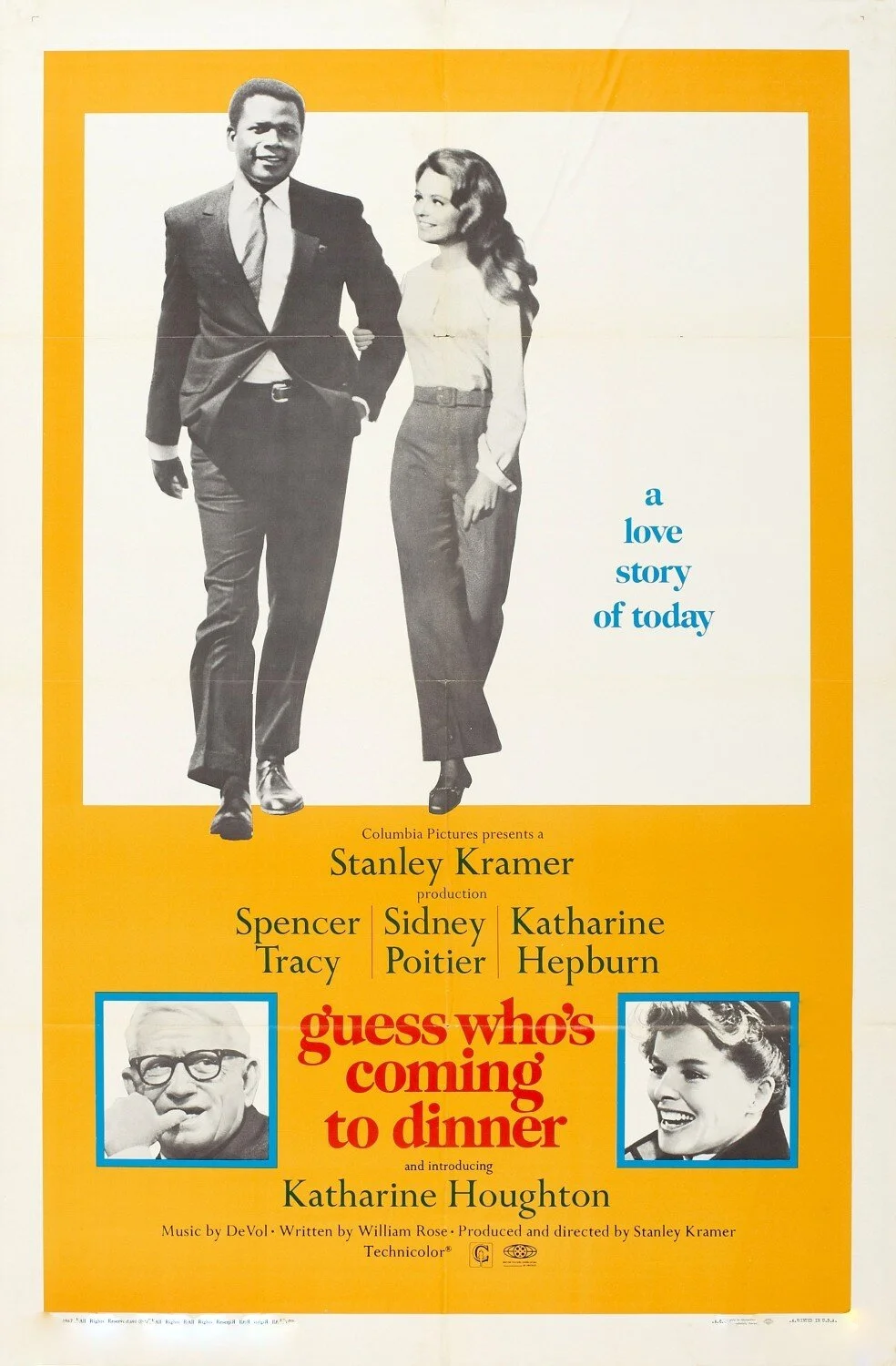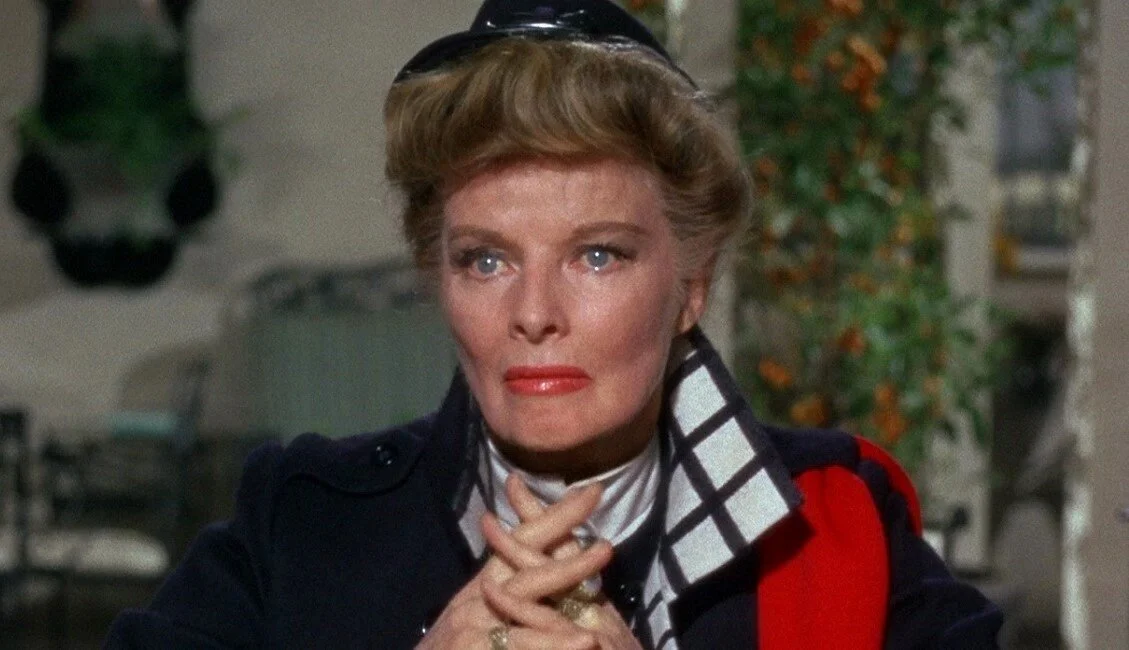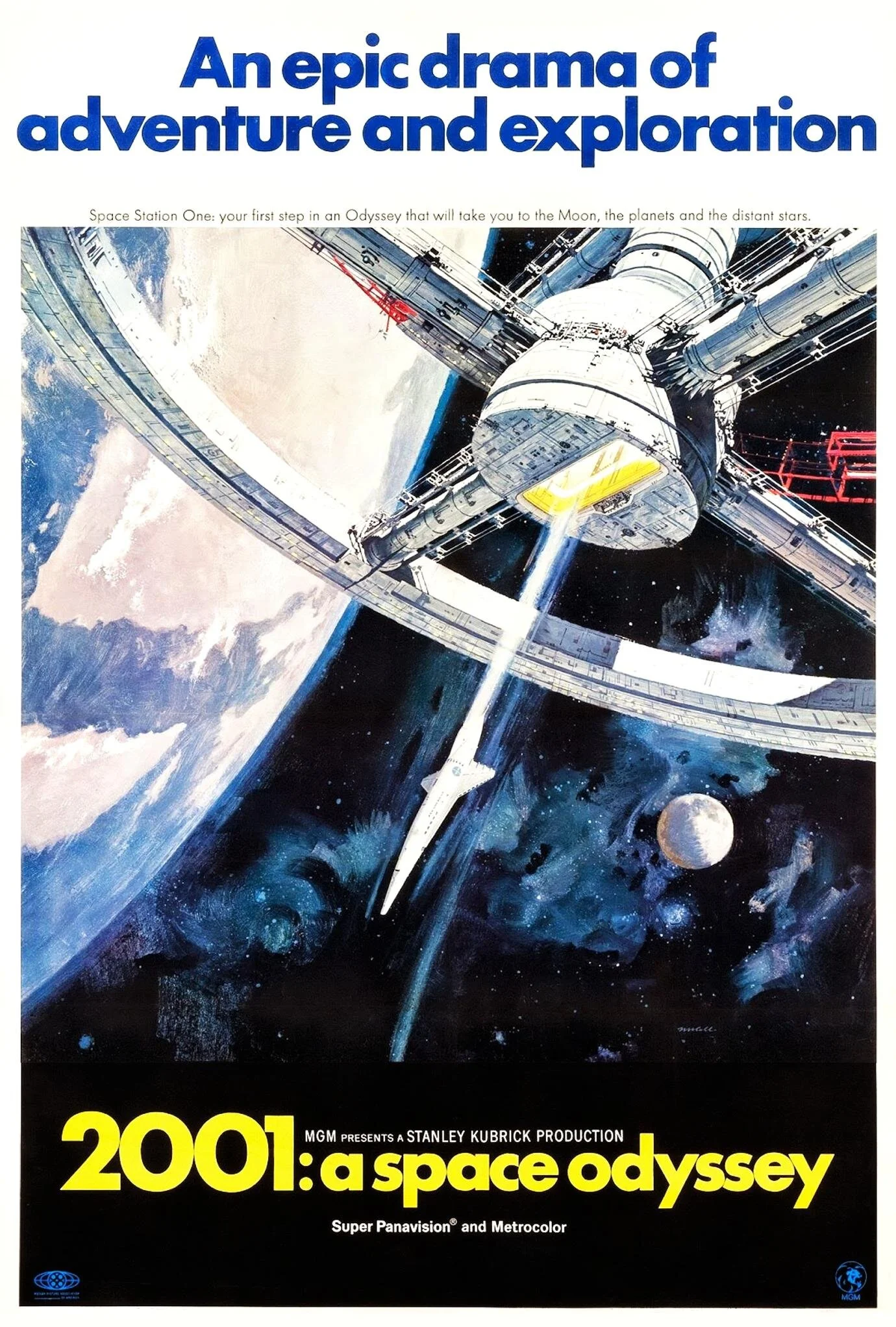Guess Who's Coming to Dinner (1967)
Written by William Rose
Directed by Stanley Kramer
1998 List Ranking: 99
2007 List Ranking: NA - Removed
My first introduction to Guess Who’s Coming to Dinner was back in Junior year of high school. Learning about U.S. History, I was told to watch this movie (why, I couldn’t tell you). Well, back then, I wasn’t nearly as organized and obsessive about time management as I am today, so suffice it to say that, when the time came, I…didn’t really watch it. I think I watched the first 15 or so minutes and then read a plot summary (look, I’ve talked a lot about how…not great my history education was growing up, so I’ll fully own this. BUT, maybe don’t assign a movie to watch in lieu of, you know, ACTUAL INSTRUCTION). Well, I’m kicking myself now, because this film was great and I’m saddened that I have now missed out on nearly 20 years of having this film in my life.
John (Sidney Poitier) and Joey (Katharine Houghton)
Guess Who’s Coming to Dinner? Sidney Poitier is, alongside his unsuspecting parents! Why is that a problem? Because, in case you didn’t know it, Poitier is Black, and the girl he just met TEN DAYS AGO AND IS DEMANDING THE APPROVAL OF HER PARENTS FOR THEM TO MARRY IMMEDIATELY is White. AND it’s the 1960’s. Commence the clutching of pearls! Actually, Joey’s parents, played by Katharine Hepburn and Spencer Tracy, are liberal San Franciscans, so they (as they repeatedly remind themselves) have no problems with interracial marriage. However, that acceptance clearly doesn’t quite fully extend to their daughter. Both sets of parents must battle their misgivings and unconscious biases and it may end up splitting Joey and John for good.
Katharine Hepburn
While Poitier is clearly the subject of the plot, the most masterful performances belong to Hepburn and Tracy. It’s been a while since we’ve seen Hepburn on this list, and there’s a nice restraint that she shows here, something that I would never have imagined in her earlier films. She is a one-woman masterclass in thinking on screen, every thought clearly discernible behind her eyes. In a film of great moments, perhaps my favorite of hers is her firing of an employee who has the gall to make insensitive and thinly-veiled racist remarks after learning of John and Joey’s relationship. It’s one of the few times that Hepburn really lets loose and we see a bit of that older, more brash style she’s shown before.
Spencer Tracy
Surprisingly, I’ve never seen a film with Spencer Tracy in it before, so it’s a little surprising to see him here in his final role (plagued with health problems, apparently the making of this film was arduous on him (and, by extension, everyone else), and he passed away two weeks after completing his work. Hepburn, his companion for many years, refused to see the film due to the painful memories it brought up). In the film, his work is quiet and subdued, and it definitely feels that Hepburn is the driving force of the two of them. However, the film ends with a breathtakingly brilliant monologue performed by Tracy that is deeply moving. It’s a shame that he did not live to see the praise his performance garnered, because he is absolutely amazing.
John confronts his father
The rest of the cast, quickly, are fine, but it really is Hepburn and Tracy’s time to shine. Katharine Houghton isn’t given too terribly much to do in the film (and is perhaps written or played a bit more naively than she should be), but she definitely brings an energy that the film would lack. Poitier is charming, even if his characterization is a bit flawed, which I’ll discuss below. My favorite scene is him confronting his father late in the film; for reasons I won’t get into here, I deeply connected with it.
In an inverse of an earlier scene, John’s parents discover that his fiancé is White
Released at a time when interracial marriage was still illegal in many states, the film was probably as shocking as the proposed marriage within the film is to its characters. However, the topic of racism is, especially for the 1960’s, handled fairly well here. Of particular note is the scene in which Hepburn directly calls out to Tracy that they raised Joey to believe that there is nothing wrong with interracial marriage. Here, two people are grappling with the disconnect between what they feel and what they teach (which makes the film feel, to me, rather timely). The only problem I have with the film’s treatment of race is that John (Poitier) is described as being near perfection: the literal only things wrong with him are perhaps a minor age-gap and his ethnicity. This was purportedly done on purpose, so as to make the only reason the Drayton’s be opposed to the marriage be his race, but he’s painted as being so gosh-darn-perfect that they actually come across as extremely unreasonable for NOT immediately agreeing to the match.
(For me, the bigger (and perhaps most important) issue is that Y’ALL MET ONLY TEN DAYS AGO. SLOW. YOUR. ROLL.)
I also just want to, very briefly, touch on the music of the film. It’s fairly nondescript throughout (although there is a recurring use of “Glory of Love”, both vocally and instrumentally, that is nowhere NEAR as grating as Simon and Garfunkel in the last film), but as the film nears its end, and both set of parents ponder what to do and the various outcomes of their potential decisions, the music becomes particularly beautiful, sweetly and melodically underscoring the moment in a way that elevates the emotions in just the right way that only the best film scores can.
The film isn’t perfect, and there’s probably about 10 minutes that could be trimmed here and there, but Guess Who’s Coming to Dinner feels incredibly relevant today, as we all confront the conscious and unconscious biases within ourselves. Strong performances rule over a plot that is sometimes a little too implausible, but those performances more than make the audience forget those nitpick-y things, telling a story that is full of nuance and heart.
FINAL GRADE: A







